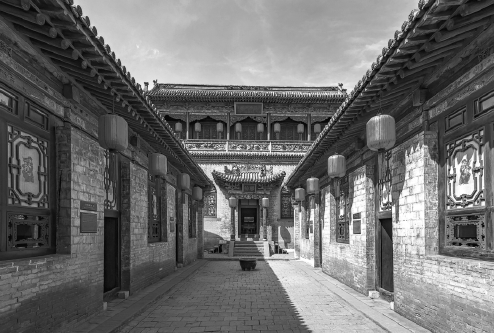A discovery channel
Program seeks to boost the countryside economy by promoting the cultural and historical appeal of rural areas among young tourists, Yang Feiyue reports.

A program to revive rural areas and tap into their culture and tourism was launched in the capital on Thursday.
The Discover Ancient Villages program is led by the China Cultural Relics Academy and will offer planning, marketing and publicity support for the protection and development of traditional villages accredited by the central government, especially those in the middle and west of the country.
The program is expected to last for two years and serve at least 50 villages across the country.
Traditional villages which abound in a rich history and cultural landscape are the biggest legacy of China's agricultural civilization, experts say.
Traditional villages will play an important role in constructing the "dual circulation" development pattern (domestic and overseas markets are expected to reinforce each other, with the former acting as the mainstay), adjusting urban-rural relations and reinforcing China's cultural heritage, says Shan Jixiang, head of the China Cultural Relics Academy and former director of the Palace Museum.
"Cultural heritage should no longer be locked in a warehouse but should return to people's lives," Shan says.
"Only by enabling people, especially young people, to experience the charm of traditional villages and their cultural heritage, will they develop the passion and initiative to protect them, truly realizing the inheritance of Chinese culture."
To date, the country has approximately 6,800 accredited traditional villages and many of them are facing challenges.
"At present, there are various problems in traditional villages, such as population loss, decaying buildings, aging facilities and lack of information and funding," says Zheng Guozhen, vice-chairman of the China Cultural Relics Academy, adding that they especially lack development themes and projects that follow current trends and market demand.
The Discover Ancient Villages program is aimed at showing the rural beauty of nature, humanity and history and helping to speed up their development, Zheng says.
China has made historic achievements in eradicating absolute poverty. Next, the country will push forward rural vitalization in an all-around way, with a historic shift of focus in the work related to agriculture, rural areas and farmers.
Efforts must be made to promote the efficiency and quality of the agricultural sector, make rural areas suitable to live and work in and make sure that farmers are affluent, according to the country's annual central rural work conference in late December.
The country will speed up rural industry development to bring farmers more benefits, strengthen intellectual and moral standards, prevent and control pollution in rural areas, accelerate reform in key sectors in rural areas, prioritize rural infrastructure facility construction, facilitate integrated urban-rural development and improve rural governance.
It envisions a rural area featuring thriving businesses, an eco-friendly environment, social etiquette and civility, effective governance and a prosperous rural population.


Today's Top News
- High-speed rail reaches 50,000 km milestone
- China puts sanctions on US defense firms, execs
- Iconic hall reopens after decade-long renovation
- Sanctions show China's resolve to safeguard its sovereignty and territorial integrity
- China OKs three action plans to build pilot zones for a Beautiful China
- CPC leadership meeting stresses steadfast implementation of eight-point decision on improving conduct






























